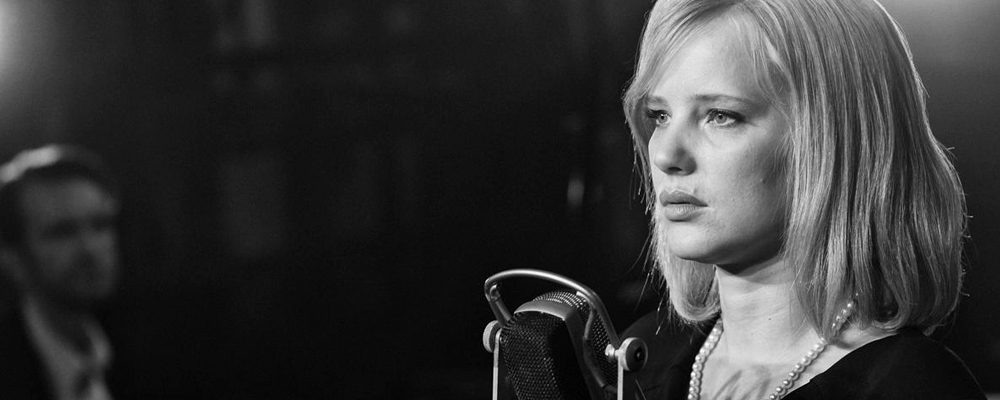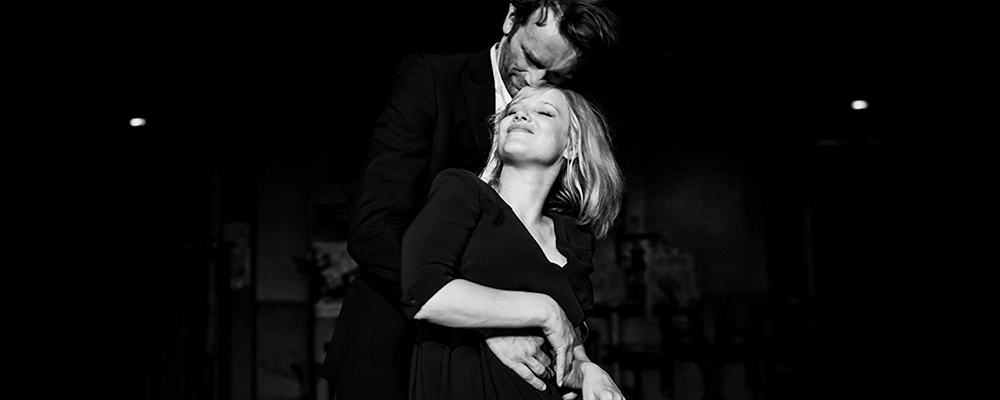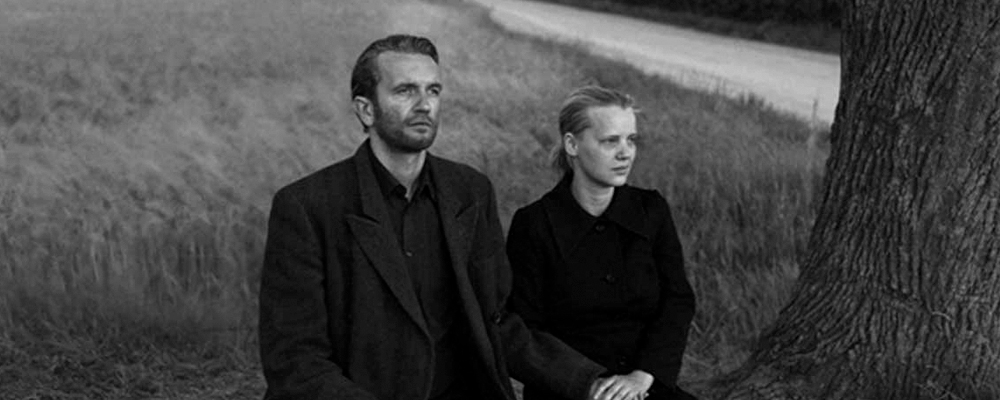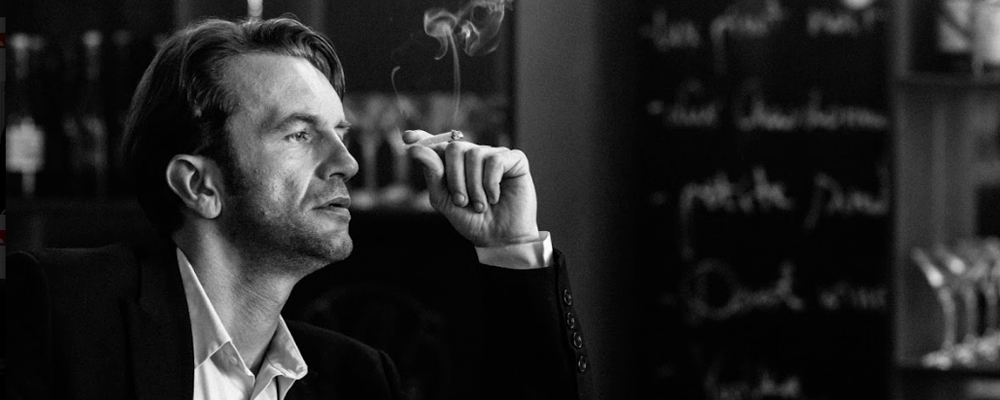Joanna Kulig Reflects on Capturing Doomed Love for Pawl Pawlikowski’s ‘Cold War’
Alci Rengifo
In “Cold War,” the new film by Oscar-winning Polish director Pawel Pawlikowski, a doomed love affair becomes a metaphor for the suffocation of a totalitarian world. When opposites attract blind emotions can be as entrapping as any gulag, but in this film the tragedy is compounded by the lovers becoming victims of history. Wiktor (Tomasz Kot), the director of a musical group named Mazurek in 1950s Communist Poland, falls for a young singer named Zula, played by Joanna Kulig. The two are a socially mismatched pair. Wiktor is a refined musician while Zula hails from the wrong side of tracks, and is rumored to have murdered her abusive father. The two gravitate towards each other and endure a journey of many fights, disappointments and inner struggles amid the cold repression of Stalinism. The film has swept the recent European Film Awards, taking trophies which include Best Film, Best Actress, Best Actor and Best Director. There is now much buzz that it could easily earn a Best Foreign Film Oscar nomination.
Pawlikowski earned much acclaim for his 2013 “Ida,” which won the Best Foreign Film Oscar. With “Cold War” he uses Polish folk music to express what the characters are feeling, laying the soundtrack for a romance that is far from ideal. Wiktor and Zula are separated and reunited by both their passion and the boundaries of the actual Cold War. Their journey takes them from Poland to Hungary, to Paris and back to the labor camps of the Soviet regime. At times their love isn’t doomed because of the system, but because while Wiktor is all giving, Zula is still grappling with her own self-loathing. Tomasz Kot plays Wiktor with a serene, tense intelligence, while Joanna Kulig’s Zula bursts with dark, impatient life.
Kulig recently discussed with Entertainment Voice the journey of making “Cold War” and acting out immense longings and passionate feelings.
When you first received the script, what were your first impressions?
Pawel wrote this part for me, and when I read it I thought, “this is exactly the part for me.” I knew that I can show all my skills in this, not only acting but singing, professional dancing. I knew that the relationship is difficult but the characters are so…well, many things to act. I knew the progress of their love would be very long and interesting. It was just great material.
How familiar were you with folk music before taking on this role? Because there’s a difference between knowing about it, and being a real aficionado, right?
I grew up in a small village outside of Krakow and of course folk tradition still exists very much there. With my two brothers and my two sisters we used instruments, we were singing, playing accordion and the music was always in my home.
Zula is quite a personality. In preparing for the role, how much of her could you relate to?
Some things about her were more familiar to me 10 years ago. I was quite similar to Zula when it came to emotional things. I remember when I started performing onstage there was no “middle,” I would go either very high or very low. But when I met my husband I understood that because he was so calm that if I don’t start to, you know, be a little bit in the middle then it would be very hard to be in a relationship. When my husband saw the film at Cannes he was crying and said, “oh my god, I remember how in the beginning you were exactly the same” (laughs).
One interesting thing about this movie is that it’s not your typical movie romance.
And it is inspired by Pawel’s parents. They were like that. They got married then got divorced. They met in different countries, then got married again. It’s not your typical couple.
Now that you’re married, and you’re expecting, when you look at this kind of character, what do you think about this kind of relationship? It’s very tragic and almost self-destructive.
It’s true what you said. But remember, this takes place in the 50s, in the past, and I think they could have had happiness but they don’t have the proper place to build this relationship. It wasn’t just about falling in love, being a couple, building a house. They also had to deal with the Communists and the shock of the whole situation. Wiktor knows he can’t just sing about Stalin and this strange system, but for her the system wasn’t so important, what matters to her is food and a home. It’s a different situation and different mentality. That’s why they have the problems they have, including immigration. She’s not ready to go to some different country, to a different language. She tells him, “I’m not good enough for you,” so she doesn’t believe in herself enough to go somewhere new.
There’s that age gap too. He’s a little older, so he’s a little wiser, she’s younger and so shes goes a lot by impulse.
Yes! This is interesting because generally it’s good to have a couple where someone is more calm and the other is more emotional, because it’s like “ok, I have this but you have this.” But it’s tragic because they want to be together but can’t be together. The music connects them. Because when they have music they have good communication.
The songs almost express what it is they are feeling and experiencing.
Yes, yes. Especially the main song you hear throughout, it’s basically about their relationship.
So you were born in 1982, which means you came of age just as the Iron Curtain was falling down.
Yeah I was six or something, which is why all I remember when people were saying “you need to vote for Lech Walesa,” I remember the posters for the Solidarity movement. I was small, I didn’t understand what was going on, but I knew there was something very important about the situation. Tomasz Kot is seven years older than me, so he remembers more. I also knew, because my mother would talk about it, that daily life was difficult because you couldn’t travel. Right after the war, the Communists took over, so they had a more difficult life than we have now.
And today Poland is again going through major political changes, there’s a controversial government in power, and you’re seeing history again being discussed, as in this movie.
This is what’s great about film. The most important thing here is the love story, but people can also learn something about history. Pawel was 14 when he had to immigrate to England, he lived there for 40 years then came back to do “Ida” and “Cold War.” He loves Poland, but doesn’t want to go so deep, because Polish history is so heavy. We have to learn to be proud of our history but also bring closure to this part of it. In Poland some people want closure but the history is so heavy it’s always there. But it’s great that we can learn from it. It’s good, I think, to talk about the positive things, and then we can go and talk about the negative.
You were also in “Ida,” another fantastic film. So what is the working relationship with Pawel Pawlikowski like?
We have such a great relationship. We are friends too, he was at my wedding and I was at his. He has something very special, like the freedom of a documentary filmmaker and the sensitivity of a great artist. He loves music, he plays the piano. We have the same intuition and musicality. We can communicate without words. When I was onstage, on the set, very often, when I saw his face I knew it was good or bad. It’s this soul connection.
What was the vibe on set like with your co-star? This is an onscreen relationship so different from what we get in American romances.
We played a couple before in a comedy directed by my husband. It had a lot of color, and here it is a different tone obviously. Tomasz is older than me, he has such a huge experience, and he knew how to help me build a big, strong character in the movie. He would say, “remember this is the 1950s, different times, you have to be more old fashioned.” That inspired me to go back and watch movies like “Casablanca,” “Dr. Zhivago,” and actresses like Lauren Bacall.
And you’re now pregnant, so that must alter your next acting choices.
It’s an adventure, definitely.
“Cold War” opens Dec. 21 in select theaters.




